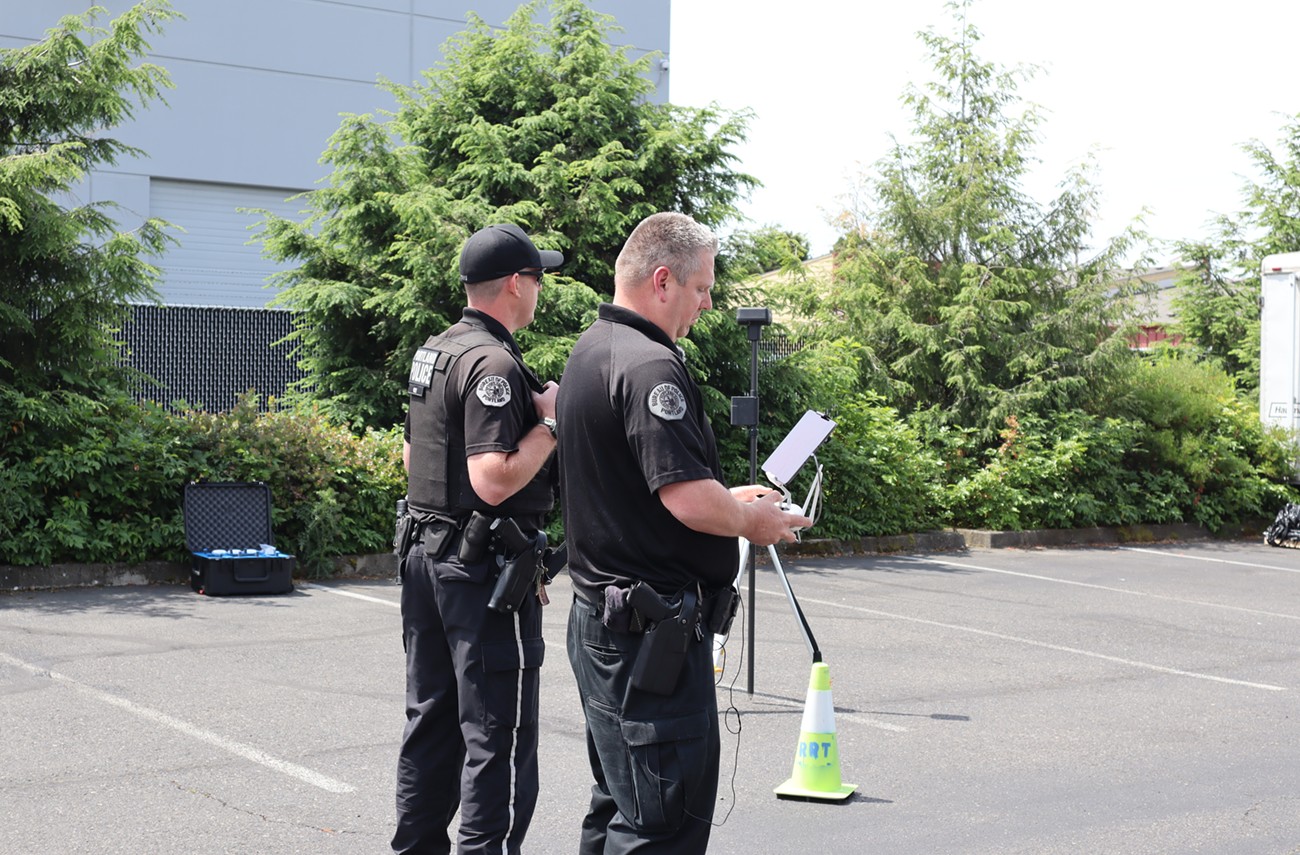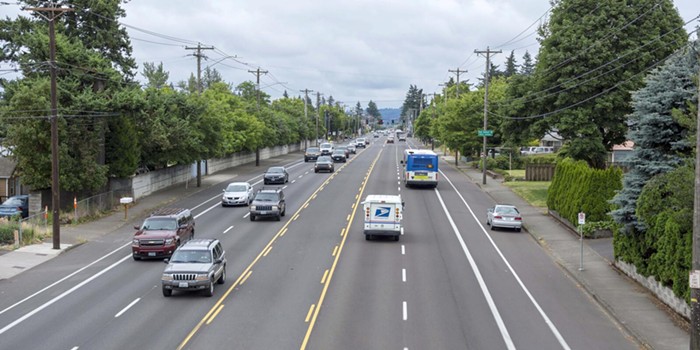Portland Police will begin using aerial drones next week to help conduct certain investigations.
The bureau expects to kick off a year-long pilot project using the aerial cameras, starting June 13. Back in April, Portland City Council approved spending up to $80,000 from the bureau’s existing budget on the pilot project.
Bureau leaders estimate about half of that has been spent so far on equipment, including eight drones.
What to expect
Portland Police say during the pilot project, they mainly expect to use drones to collect images from crash and crime scenes, noting footage can be “stitched together” to reconstruct scenes, which helps speed along investigations.
Currently, police use a clunky, laser scanner at major crash and crime scenes.
“These drones can photograph that scene in probably a tenth of the time,” said Gresham Police Sgt. Mike Amend. Gresham Police Department helped train Portland police on flying and operating drones.

Oregon law limits the scope of how police can use unmanned aerial devices. Law enforcement agencies must obtain a warrant to use drones, unless they’re being deployed to: investigate crashes and crime scenes; help with search and rescue efforts, or public emergencies; or in “exigent circumstances,” like bomb threats or hostage situations, according to state law.
The devices are not supposed to be used to randomly surveil people, or for crowd control during events such as protests.
Drones are likely here to stay
To date, about 16 officers have been trained on operating the drones.
While neighboring police agencies like Gresham have been using drones for years, PPB was slow to adopt the technology. That’s been a sore spot with the bureau, but it also allowed local police to see what devices work best for police needs.
“If you walk out of Portland, in any direction, you're going to step into an agency that uses drones, so we are a little bit behind,” PPB Sgt. Jim DeFrain said during a media demonstration Thursday, June 8.
“This thing has proven to de-escalate situations, it's proven to get streets open faster, and it's proven to help the community,” DeFrain added, noting that officers and partner agencies have embraced the use of drones in emergency response. “Everybody wants us to move forward on this, they like it.”
After the year-long pilot is over, DeFrain expects the bureau will send a report to City Council with data and general conclusions, but pointed out that it’s unlikely PPB will abandon the technology.




















